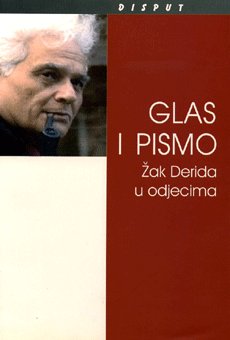Niko živ ne može vršiti dekonstrukciju. Ka Deridinoj epistemologiji fantomskog
No Man Alive Can Do Deconstruction
Author(s): Ugo Vlaisavljević
Subject(s): Philosophy, History of Philosophy, Metaphysics, Epistemology, Structuralism and Post-Structuralism
Published by: Institut za filozofiju i društvenu teoriju
Summary/Abstract: Already in his earliest writings on Husserl, Derrida came to believe that the essence ofWestern thought lies in its will to secure a lasting presence of things. His determination of metaphysics as a metaphysics of presence has become very known and abundantly interpreted. However, there is a scandalous silence concerning his complementary determination of metaphysics as a metaphysics of life. As for all history of philosophy, and most evidently at its end in Husserl, the presence meant a vivid presence, a full presence of Life to itself. So the famous critique of metaphysics has to be, not in a second place, a critique of the philosophy of Life. How much seriously have we taken Derrida’s early insight that “the living present”, that ultimate ground of phenomenology, which is in turn characterized as “the most modern, critical and vigilant form of metaphysics,” is “a concept that cannot be broken down into a subject and an attribute?” To take a clear hold on this issue is to see in deconstruction a thought that tries to introduce into philosophy not death in general but “my own death.” In comparison with the metaphysics, its proper register is neither life nor death. Deconstruction turns out to be a thought that is not afraid of being haunted by specters and phantoms.
Book: Glas i Pismo
- Page Range: 183-190
- Page Count: 8
- Publication Year: 2005
- Language: Bosnian
- Content File-PDF

